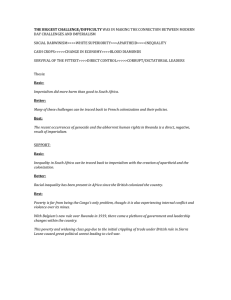
Jane Kentish ( Oxford, 1991), 34 Google Scholar. Dostoevsky, Fyodor, Notes from the Underground, and The Gambler, trans. So prevalent was the use of “2 + 2 = 4” as a framework for understanding contemporary questions, in fact, that Fyodor Dostoevsky, in his 1864 novel Notes from Underground, decried its insidious pervasiveness. Dumons, F., Un Mot a propos de la Question d’Orient sur le Devoir de la France et l’Avenir de l’Europe ( Bordeaux, 1840), 10 Google Scholar Dostoevsky, The Diary of a Writer, 428. See “To Correspondents,” The Times, 23 April 1830, 4.ġ04 Following a long-standing preoccupation with viewing the “Eastern question” in terms of a “formula” with a “solution”-viz. My own research suggests that Toury's claims are a bit off the mark. See Toury, Jacob, “ ‘The Jewish Question’: A Semantic Approach,” Leo Baeck Institute Yearbook, 11 ( 1966), 85– 106 CrossRef Google Scholar. He notes that, although there were semantic near misses during the revolutionary period in France, “a question juive did not emerge.” Ultimately he places the origins of the slogan in the 1830s, concluding that “the ‘Jewish question’ as a slogan did not take roots until it had established itself as an anti-Jewish battle-cry,” namely with two long essays published in 1838 in German titled Die Jüdische Frage. The only thorough history of the “question” usage I have found thus far is an article on the semantic origins of the Jewish question by the Jewish historian Jacob Toury.

For backdating see Horowitz, P., The Jewish Question and Zionism ( London, 1927) Google Scholar. Many commentators on the Jewish question have traced its origins as far back as the very origins of Judaism, though it too was very much of nineteenth-century (1830s) vintage. For examples of backdating see Roepell, Dr Richard, Die orientalische Frage in ihrer geschichtlichen Entwickelung, 1774–1830 ( Breslau, 1854), 15 Google Scholar von Pastor, Ludwig Freiherr, Smith, Goldwin, Antrobus, Frederick Ignatius, and Kerr, Ralph Francis, The History of the Popes, from the Close of the Middle Ages: Drawn from the Secret Archives of the Vatican and Other Original Sources, vol. 1830, 6 Albion and The Star, 5 April 1833, 2 Urquhart, David, McNeill, John, and Ross, David, Eastern Question, 16/89 ( London, 1833) Google Scholar Monthly Magazine or British Register (of Politics, Literature and the Belles Lettres) (May, 1833), 592 The United Service Journal and Naval and Military Magazine, 1833, Part II (London, 1833), 401. For early mentions of the “eastern question,” see “French Policy towards Russia,” London Star, 7 July 1829, 3 Morning Chronicle, 21 Jan. See Fontane, Theodor, Eggers, Friedrich et al., Theodor Fontane und Friedrich Eggers: Der Briefwechsel: Mit Fontanes Briefen an Karl Eggers und der Korrespondenz von Friedrich Eggers mit Emilie Fontane ( Berlin, 1997), 251 n CrossRef Google Scholar.ġ02 Just two examples must suffice here: although the appearance of the “eastern question” in state correspondence and published sources dates back to the 1820s and 1830s, most works on it trace its origins back at least to the emergence of tsarist Russia as a factor in the future of the Ottoman Empire with the Russo-Turkish war of 1768–74 and the subsequent treaty of Küçük Kaynarca of 1774. The “oyster question” engaged such prominent figures as the German novelist and poet Theodor Fontane and the German art historian Friedrich Eggers. Robertson and Wise, Thomas James, Literary Anecdotes of the Nineteenth Century: Contributions towards a Literary History of the Period ( New York, 1967), 339–41 Google Scholar. 6 ( London, 1904), 359–62 Google Scholar see also Nicoll, W. Swinburne, Algernon Charles, “ The Question” (1887), in The Poems of Algernon Charles Swinburne, vol. A translation of Napoleon III's speech is in FRUS, United States Department of State, message of the president of the United States, and accompanying documents, to the two houses of Congress, at the commencement of the first session of the thirty-eighth congress (1863), Supplement: France, –1329, 1323. 95 On the “sugar question,” from a speech delivered by Napoleon III to the French Chamber of Deputies on the occasion of the opening of the legislative session in November of 1863.


 0 kommentar(er)
0 kommentar(er)
